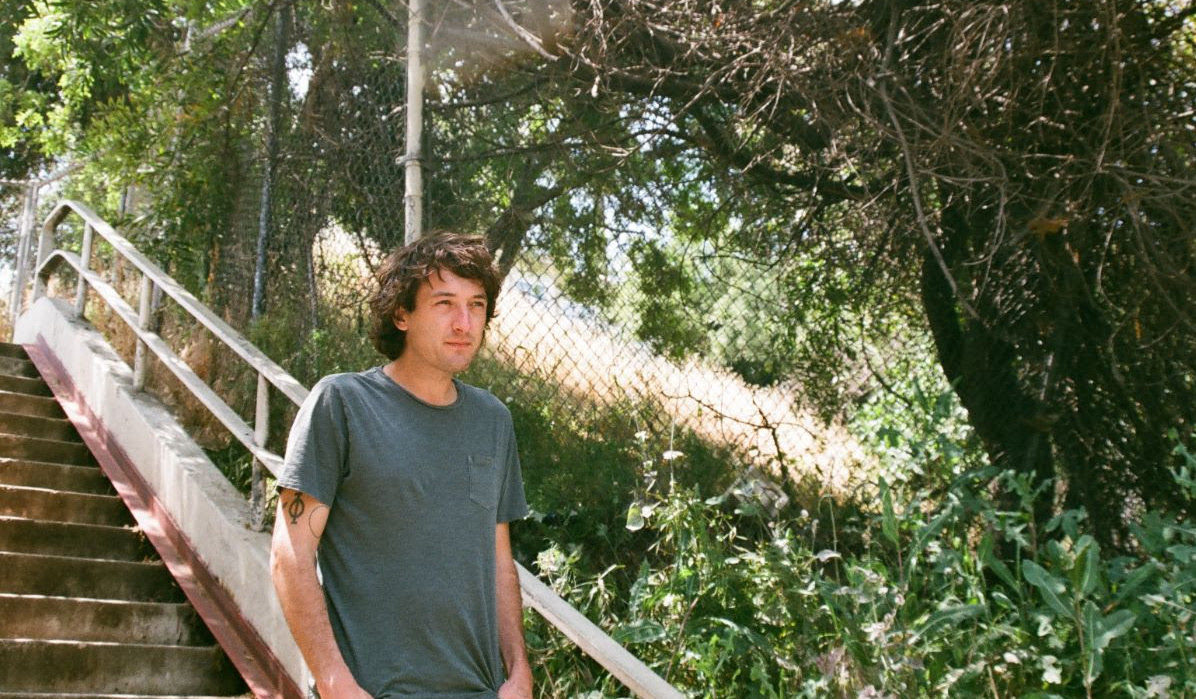Although humans cause almost 90 percent of forest fires, when left to its own devices, nature will likewise purge overgrowth in a purifying blaze. Following the destruction is a period of rebirth, and it was with this Phoenix-like revival in mind that baroque garage-rocker Mikal Cronin descended south to demo his first album in four years. What he didn’t anticipate was that he’d actually confront the heat.
“Some shithead maniac started a pretty big fire up there,” Cronin says of his experience isolating himself in the hills of Idyllwild, CA. “Waking up to the orange sky and the flames coming up the hills, it was pretty surreal. So I definitely wrote more about fire after the experience of being caught up in one, but I was kinda in the forest-natural-disaster mindset to begin with. Not saying I called it or anything. It just happened.”
This incident colored the album; its smoke lingers in the periphery. Cronin had to evacuate the cabin he and his cat Ernie had been occupying for the month he spent writing most of the ten tracks that compose Seeker. One song that doesn’t seem to have made the cut, yet remains on the lyric sheet, is called “Arsonist.” There’s no music that accompanies it, but the words burn with intensity: “Say a prayer, restitution, I’m alone against the world / Give it up for evolution, clear the way, something new.”
Cronin blazes a new path with Seeker, jettisoning the self-titled numerical format he had applied to his previous three LPs. “It was just time to break the cycle,” he says. “I feel like thematically I took a bit of a shift here, vibe-wise.”
A multi-instrumentalist, Cronin has been spinning catchy pop tunes for almost a decade under his own name. He grew up in California and started writing songs late, he says—around eighteen or nineteen years old. He played in the bands Moonhearts and Epsilons alongside Ty Segall before taking center stage, though he’s never commanded a spotlight. He always seems on the brink of breaking out—his first two self-titled albums pointed in the direction his forward momentum has been pulling; they’re more straight-forward rockers, whereas Cronin’s goal with the third was to “go big.” MCIII achieved this with its focus on more ornate production, while simultaneously staying true to his pensive, musing personality.
Although the trilogy of MCs I-III were recorded in San Francisco, Cronin decided to lay down these new tracks at a studio in LA. A team of trusted collaborators—many of whom make up Segall’s backing band, of which Cronin is also a member—were enlisted to give Seeker a live sound. But before he was able to share, he needed seclusion to explore his mind and experiment unfettered, away from judgment. “I get really self-conscious about my music until it’s at a point where I feel like I can show people, so I really just need to be in a room where you can’t hear the horrible melodies I’m trying for the first time,” Cronin admits.
“I get really self-conscious about my music until it’s at a point where I feel like I can show people, so I really just need to be in a room where you can’t hear the horrible melodies I’m trying for the first time.”
This sort of abashed confession is in keeping with the headspace Cronin occupied as he worked alone. While he was removed from civilization, he was lost in his own world. Seeker’s second track “Show Me” encapsulates the journey of self-discovery he’s on; it’s a mid-tempo rocker that recalls “ditch-trilogy”–era Neil Young (see: Cronin comparing himself to a movie character, a favorite reference point of Shakey) and features melancholy strings playing to the chorus’ self-flagellating refrain (“I don’t want to know me these days / Set myself afloat in the water / Feeling like a fool here alone / Show me where to go”). To whom this plea is addressed, it is not clear. But introspective sessions were equally illuminating and depressing for Cronin.
“[There’s] a lot of emotional ups and downs when you’re by yourself for that long in a place you don’t know. Especially if you’re doing creative work,” he explains. “Some days I felt great and had a song or two that felt really good; I felt really connected to the music. And there were definitely days where I hated everything and didn’t get shit done.”
The songs are imbued with darkness: lovelorn, tense, unsure. They’re rocking ballads filled with ornate production and doubts. I ask if writing them helped bring him solace.
“It helped organize my thoughts on a lot of things,” he replies. “I have a lot more questions than I have answers in general, especially about my own life and emotional state. I’m still searching, for sure. There’s still plenty to figure out.” FL







